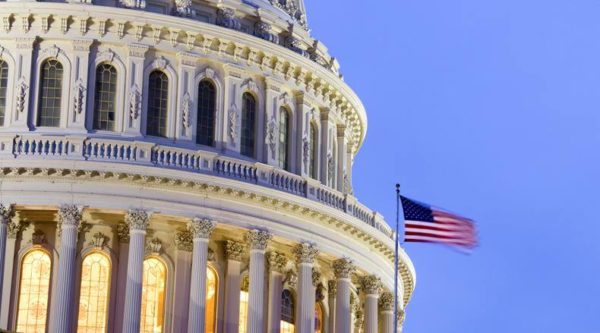
- Details
- By Native News Online Staff
WASHINGTON — The United States Senate on Tuesday passed a bipartisan infrastructure bill that includes $550 billion in new spending and reauthorizes highway and water programs, among other provisions. The legislation would inject federal cash into roads, bridges, water systems, broadband, rail and transit, and also includes $11 billion that is earmarked for infrastructure projects Indian Country.
Tuesday’s vote comes after months of negotiations between senators from both political parties. In the end, the bill passed 69-30, a margin that demonstrated its popularity in the evenly divided chamber. All 50 Democrats voted for final passage, as did 19 Republicans. Sen. Mike Rounds (R-SD) did not vote on the bill.
Want more Native News? Get the free daily newsletter today.
After Tuesday’s vote, Sen. Brian Schatz (D-Hawai‘i), chairman of the Senate Committee on Indian Affairs, praised its passage and said the more than $11 billion in dedicated funding for tribes and Native communities. The Jobs Act will deliver targeted federal resources to advance deployment of infrastructure in Native communities.
“Native communities’ critical infrastructure needs, such as sanitation, transportation, water settlements, and broadband, have been well documented – yet underfunded – for decades. After Covid hit, it became clear that robust federal investment to build new and update existing infrastructure in Native communities was essential,” Chairman Schatz said.
“The more than $11 billion for Native communities is proof positive that we can come together, on a bipartisan basis, to get things done. But our efforts don’t end today – we have more work to do to better represent and serve Native communities across the country.”
The $11 billion investment in Native communities includes:
- $3.5 billion for the Indian Health Service Sanitation Facilities Construction Program
- $3 billion for the US Department of Transportation Tribal Transportation Program
- $2.5 billion to address approved Indian water rights settlements
- $2 billion for the National Telecommunications and Information Administration Tribal Broadband Connectivity Program to expand broadband access on Tribal lands and Hawaiian Home Lands
Tribes and Native-serving organizations are set to receive additional funding to support transportation enhancement, energy development, water and sanitation construction, broadband deployment, climate resiliency, natural resource management, and environmental remediation, among other infrastructure priorities for Native communities.
The bill also includes the Padilla-Moran-Lankford amendment, which will allow Urban Indian Organizations (UIOs) to use existing resources to fund infrastructure projects to better serve patients and families. Last week, the urban Indian health amendment was the first amendment in the infrastructure package to get voted on in the Senate, and it passed with overwhelming support with a vote of 90-7.
“This technical fix will be critical to expanding health care infrastructure for Native communities who have been devastated by the COVID-19 pandemic,” Francys Crevier (Algonquin), CEO of National Council of Urban indian Health.
The bill heads to the House for further consideration.
The bill heads to the House for further consideration.
More Stories Like This
Native News Weekly (August 25, 2024): D.C. BriefsUS Presidents in Their Own Words Concerning American Indians
Next on Native Bidaské: Preserving Indian Health with A.C. Locklear
Hozhonigo Institute Helps Drive $34.5M in Grant Pipeline for Tribal Communities
Torres, LaMalfa Lead Push to Safeguard Culturally Important Tribal Seed Varieties
Help us defend tribal sovereignty.
At Native News Online, our mission is rooted in telling the stories that strengthen sovereignty and uplift Indigenous voices — not just at year’s end, but every single day.
Because of your generosity last year, we were able to keep our reporters on the ground in tribal communities, at national gatherings and in the halls of Congress — covering the issues that matter most to Indian Country: sovereignty, culture, education, health and economic opportunity.
That support sustained us through a tough year in 2025. Now, as we look to the year ahead, we need your help right now to ensure warrior journalism remains strong — reporting that defends tribal sovereignty, amplifies Native truth, and holds power accountable.
 The stakes couldn't be higher. Your support keeps Native voices heard, Native stories told and Native sovereignty defended.
The stakes couldn't be higher. Your support keeps Native voices heard, Native stories told and Native sovereignty defended.
Stand with Warrior Journalism today.
Levi Rickert (Potawatomi), Editor & Publisher

